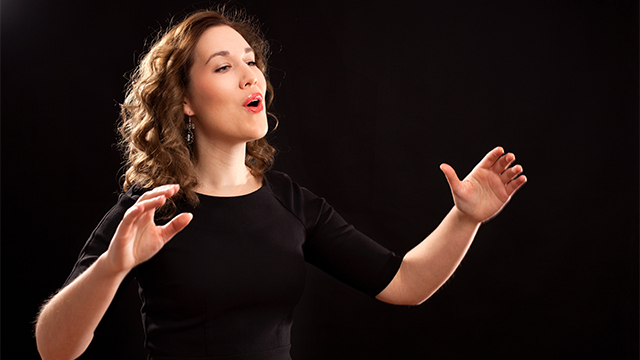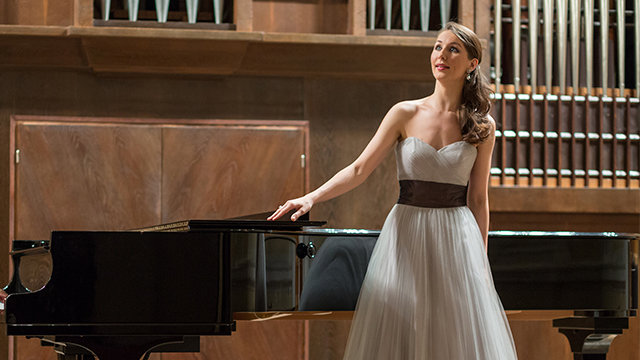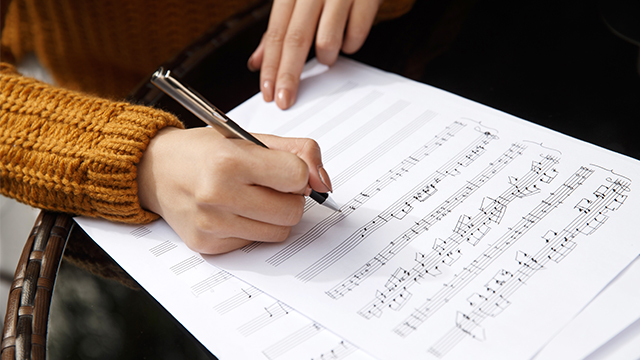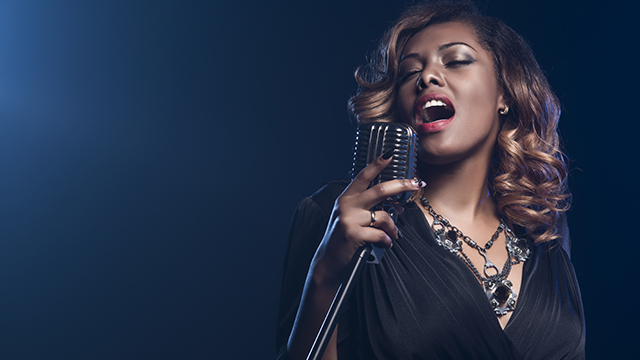Ten Reasons Why Every Singer Should Be Classically Trained
Written by Alexandra Muscaro
November 3, 2017
Have you ever wondered how the best rock legends are still able to sing well into their 70s and sound the same as they did in their 20s? Do you wish you could figure out how Broadway stars last through an eight-show week? The answer is all in the training…classical training. Here are the top ten reasons why all singers should be classical trained.
1. Anatomy 101

Your body is your instrument! If you were learning how to play piano wouldn’t you learn the difference between the white and black keys and the different sounds each petal makes? Just like any physical instrument, your body requires an analysis and an education on the anatomy of your voice. A classically trained instructor takes the time in the beginning of a student’s training to teach them the different parts of the body that help create sound, and he or she teaches the student how to keep them safe and healthy.
2. Body Stance

Once a student understands the anatomy of their body, a classical instructor devotes much of the lesson to body stance. The proper body stance is key to creating a healthy and beautiful sound, but to harness this body stance requires practice and muscle memory. A classical instructor will not continue a lesson if he or she notices the student standing incorrectly.
3. Breath Support

Proper breath support is one of the strongest skills that stems from a classical training. Once a classical student has a strong understanding of the anatomy and proper body stance of a singer, a teacher will then be able to instruct them on how to use this knowledge and apply it to breath. Breath support, much like body stance, requires practice and muscle memory. A classical instructor will devote a large amount of time explaining diaphragm release and lung expansion.
4. Safe Vocal Warm-Ups

Because classical singers have such a strong attention to anatomy and a developed understanding of their voice physically, they know the safest vocal exercises. A professional ballerina is not going to perform Swan Lake without a warm up. Likewise, a performer is not going up on a Broadway stage without proper warm up; and through classical training, a singer develops a large toolbox full of vocal warm-ups that will stay with them throughout their career.
5. Vocal Strength!

After months and even years of classical training, a singer’s voice and muscles begin to develop and strengthen allowing for a healthier belt and mix voice. This strength is one of the prime reasons that Broadway performers and pop stars begin their vocal journey with classical training.
6. Ease of Singing in Foreign Languages

Classical training is rooted in opera — an art form that is hundreds of years old and began in Europe. Because it began in Europe, the majority of these beautiful and masterful compositions are in languages other than English. Once a singer has experience singing classical Italian, German, and Spanish songs, he or she should have a much easier time singing English compositions while also connecting to the lyrics.
7. Vowel Shape

Because the majority of a classical singer’s journey is based in European languages, being able to properly pronounce the language’s vowels is a skill classical instructors truly teach their students. A classical student will spend hours in front of a mirror learning how to manipulate their lips, tongue, and mouth to accurately create the correct sound. A correct vowel shape in any language can make or break the pitch of a song. This devotion to detail will eventually become muscle memory and can be applied to all styles of music.
8. Music Theory

Classical training includes the education and application of music theory. Classical instructors treat their students the same as if they were piano or violin students. The student will learn about The Circle of 5ths, ledger lines, and most importantly sight singing. Instructors spend much of a student’s training analyzing the vocal scale, and then teaching the student how to apply this knowledge when approaching a new piece of music they have never seen before. A deep understanding of music theory is a skill that will instantly raise the status of one performer over another.
9. True Vocal Range

After a long devotion to classical training, through proper application of body and voice, a singer is able to reach their full vocal potential. Once this potential is fully achieved, a singer’s true vocal range can be determined. And through classical training, a singer’s vocal range can grow and further develop in healthy and safe ways.
10. Technique, Technique, Technique

At the end of the day, a classical singer is a strong musician. An accumulation of all the different aspects of classical training results in a technique that will transcend time. This means that a performer’s instrument stays healthy longer, thus extending his or her career many years than singers without training.
Need some advice? We’ve got you covered.
- 9 Useful Diction Exercises for Every Actor
- How to Bow (And What Your Bow Says About You)
- 10 Basic Rules of Stage Combat (That Keep Everyone Safe)
- 5 Advantages of Learning Stage Combat
- Don’t Be a Diva: Common Pitfalls and How to Avoid Them
- 9 Articles of Clothing Every Thespian Should Keep In Their Wardrobe
- What Makes an Actor Website WOW?
- “Is my attitude not getting me roles?” And Other Essential Questions for Actors
- 6 Steps to Memorizing Shakespeare
- 10 Tricks to Staying Healthy All Season Long
- What Does It Take to Break Into Voiceovers?
- 5 Tips for Nailing Your College Music Theatre Audition
- 10 Tips on Owning the Room at Competition
- How to Balance Theatre and Coursework
- The 10 Secrets of Great Understudying
- 10 Items Every Actor Should Carry in Their Rehearsal Bag
- 10 Items Every Dancer Should Keep in Their Rehearsal Bag
